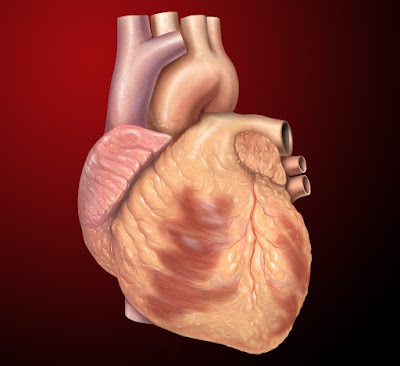There are many varieties of cardiovascular disease that have an effect on completely different elements of the organ and occur in numerous ways that.
Congenital heart disease
This is a general term for a few deformities of the guts that are gift since birth.
Examples include:Septal defects: There is a hole between the two chambers of the heart.
Obstruction defects: The flow of blood through various chambers of the heart is partially or totally blocked.
Cyanotic heart disease: A defect within the heart causes a shortage of gas round the body.
Arrhythmia
Arrhythmia is an irregular heartbeat.There are many ways that within which a heartbeat will lose its regular rhythm.
These include:
tachycardia, when the heart beats too fast
bradycardia, when the heart beats too slowly
premature ventricular contractions, or additional, abnormal beats
fibrillation, when the heartbeat is irregular
Arrhythmias occur once the electrical impulses within the heart that coordinate the heartbeat don't work properly. These make the heart beat in a way it should not, whether that be too fast, too slowly, or too erratically.
Irregular heartbeats ar common, and all people experience them. They want a flap or a athletics heart. However, when they change too much or occur because of a damaged or weak heart, they need to be taken more seriously and treated. Arrhythmias can become fatal.
Coronary artery disease
The coronary arteries supply the heart muscle with nutrients and oxygen by circulating blood.
Coronary arteries will become morbid or broken, usually because of plaque deposits that contain cholesterol.
Plaque buildup narrows the coronary arteries, and this causes the heart to receive less oxygen and nutrients.
Dilated cardiomyopathy
The heart chambers become expanded as a results of cardiac muscle weakness and can't pump blood properly. The most common reason is that not enough gas reaches the guts muscle, due to coronary artery disease. This usually affects the left ventricle.
This is additionally referred to as a attack, cardiac infarction, and coronary thrombosis.
An interrupted blood flow damages or destroys a part of the guts muscle. This is usually caused by a blood clot that develops in one of the coronary arteries and can also occur if an artery suddenly narrows or spasms.
Also known as congestive heart failure, heart failure occurs when the heart does not pump blood around the body efficiently. The left or right aspect of the guts can be affected. Rarely, both sides are. Coronary artery disease or high blood pressure can, over time, leave the heart too stiff or weak to fill and pump properly.
Hypertrophic cardiomyopathy
This is a hereditary disease within which the wall of the heart ventricle thickens, making it harder for blood to be pumped out of the heart. This is the leading explanation for extra time in athletes. A parent with hypertrophic cardiomyopathy has a 50 percent chance of passing the disorder on to their children.
Also known as mitral valve regurgitation, mitral insufficiency, or mitral incompetence, this occurs when the mitral valve in the heart does not close tightly enough. This allows blood to flow into the guts once it ought to leave. As a result, blood cannot move through the heart or the body efficiently.
People with this kind of cardiovascular disease usually feel tired and out of breath.

Comments
Post a Comment